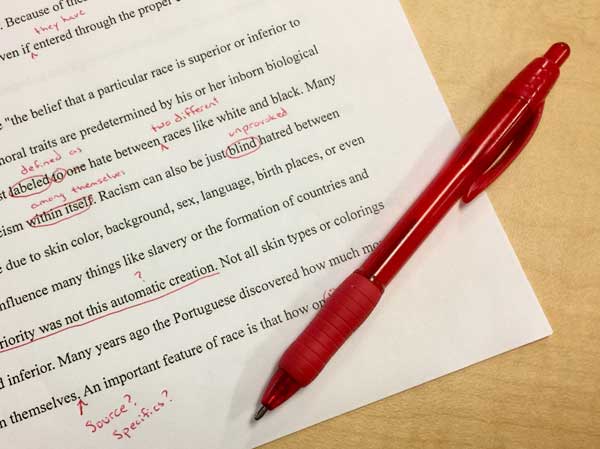We interrupt the ongoing sign series to bring you this rant about Microsoft Word’s grammar checker.
I’ll give you the bottom line first: Computer grammar checkers are not reliable. If you follow their advice, you’re as likely to introduce new errors as to correct existing ones.
For example, the following sentences get flagged incorrectly in my version of Microsoft Word (Office 365):
Critical to our success is our ability to mobilize in response to client requests.
All but three of the 40 women in the sample were office workers.
These are flagged as subject-verb errors. The problem is that Word has not correctly identified the subjects: “ability” in the first sentence and “women” in the second.
Here’s a howler:
There is still work to be done.
MS Word suggests we should “change plain verb form” (What?) to “working.” Yeah, no.
Another example:
In the schools researchers visited, they found…
Highlighting “schools,” MS Word suggests either “school’s” or “schools’.” I have no idea what it’s thinking.
At least the Office programmers fixed the problem that annoyed me most. Office 365 used to flag constructions with -ly adverbs as needing hyphens:
neatly-organized room
That’s not only wrong, it violates a simple rule that a computer could easily be taught. Phrases with -ly adverbs are never hyphenated.
That problem has been fixed, at least in my setup. Still, clients are sending me documents with every -ly adverb hyphenated. These errors were introduced by machines that should have known better.
Other mistakes, like the ones above, involve rules that would be harder to teach to a machine – but not impossible, I would think. If “they” can program computers to play chess, why can’t they develop accurate grammar checkers?
Apparently they just haven’t decided to invest the resources.
Which is good news for people like me. (Which is a sentence fragment, by the way. Which MS Word does not flag as incorrect.)
If you need an editor – as everyone does, even professional writers – then you need a human being.
There are thousands of competent human editors in the U.S. But I’m the one whose newsletter you read. Why not contact me?


